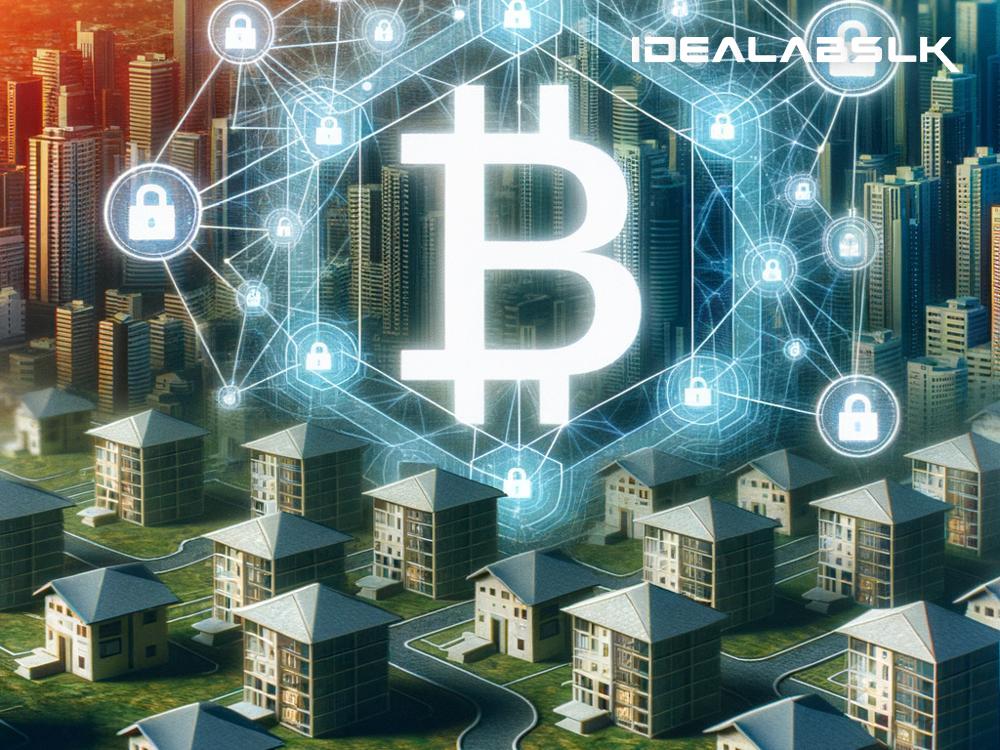Blockchain for Lowering Real Estate Transaction Costs: Simplifying the Complex
In today's fast-paced world, buying or selling a piece of property feels less like achieving a milestone and more like navigating a labyrinthine process. Real estate transactions, with their layers of complexity, can be time-consuming and expensive. However, there's a game-changer on the horizon that promises to revolutionize this process: blockchain technology.
So, what is blockchain, and how can it ease the hefty burden of real estate transaction costs? Let's dive into a simplified understanding of this innovative technology and its potential impact on the real estate sector.
The ABCs of Blockchain
Imagine a digital ledger, similar to a notebook, where transactions are recorded. However, unlike a traditional ledger, this one is duplicated across a network of computers and updates itself every time a transaction occurs. This ensures that every record is transparent and unchangeable, making fraud almost impossible. That's the crux of blockchain technology - a decentralized, secure, and transparent way of recording transactions.
The High Costs of Real Estate Transactions
Buying or selling property isn't just about agreeing on a price. It involves numerous steps: legal checks, title searches, commissions, escrow services, and more. Each of these steps not only adds time to the process but also costs. The layers of intermediaries, like lawyers and brokers, while essential, stack up the expenses further. The result? Both buyers and sellers end up spending a significant amount of money on transaction costs alone.
How Blockchain Could Cut Costs
Enter blockchain, with its inherent characteristics of transparency, security, and efficiency, all of which have the potential to drastically reduce transaction costs in real estate. Here's how:
-
Eliminating Intermediaries: By enabling peer-to-peer transactions, blockchain reduces the need for middlemen. When buyers and sellers interact directly, it cuts out the commission fees charged by intermediaries, lowering overall transaction costs.
-
Streamlining Processes: The property buying process involves various checks and verifications, which blockchain can simplify. Since blockchain records are secure and unchangeable, information such as property history, titles, and previous transactions can be accessed easily and trusted. This could significantly reduce the time and money spent on due diligence and legal checks.
-
Enhancing Transparency: With blockchain, every detail of the transaction process becomes transparent. This not only builds trust among parties but also reduces the chances of disputes and the need for litigation, further bringing down costs.
-
Improving Security: The risk of fraud in real estate transactions can't be overlooked. Blockchain’s secure nature minimizes this risk, which, in turn, can lower insurance costs and the need for protective measures that buyers and sellers currently have to bear.
The Future Is Here
The potential of blockchain to reduce real estate transaction costs is enormous, but it's not just a future promise. Some forward-thinking companies and countries are already experimenting with blockchain in real estate. From tokenizing property to facilitating cross-border transactions, the first steps towards a blockchain-based real estate market are being made.
However, the journey isn't without challenges. For widespread adoption, there must be a concerted effort to develop standardized protocols and regulatory frameworks. There's also the task of educating all stakeholders about the benefits and workings of blockchain technology.
Simplifying the Path Forward
For blockchain to truly transform the real estate sector, it’s crucial to simplify and demystify the technology. Here’s the essence of it: blockchain can make buying or selling property cheaper, faster, and safer. Imagine a world where you could buy a house without hefty commission fees, where you could verify the property’s history with a click, and where the entire transaction process could be completed in days rather than months. That's the promise of blockchain.
In conclusion, while the path to a blockchain-powered real estate sector might have its bumps, the destination offers a landscape where high transaction costs become a thing of the past. As we continue to innovate and adapt, the dream of efficient, transparent, and affordable property transactions is slowly but surely becoming a reality.

